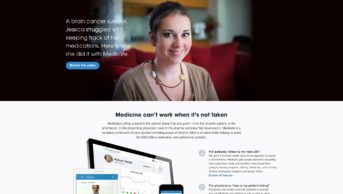
Shutterstock.com
Medicine reminder apps can improve self-reported adherence to cardiovascular medicines, according to findings from a randomised clinical trial presented at the European Society of Cardiology Congress in Munich, Germany (26 August 2018)[1]
.
The trial involved 163 patients with coronary heart disease who were randomly assigned to use an advanced reminder app with interactive and customisable features, a simple reminder app with no interactivity, or usual care.
At three months, patients who used either app had significantly higher mean scores on the eight-item Morisky Medication Adherence Scale than those who received usual care, indicating improved adherence. There was no significant difference in scores between those who used the advanced app and those who used the simple app.
The researchers said that medication reminder apps could be an effective way to improve adherence in cardiovascular disease patients who often have to take multiple medicines during the day. Future research should have longer follow-up and further explore clinical outcomes, they added.
“Longer term and larger studies are more likely to be able to show benefits or challenges of app usage, as well as the impact on additional measures, such as blood pressure and cholesterol,” explained lead author Karla Santo from the University of Sydney.
References
[1] Santo K, Singleton A, Rogers K et al. Medication reminder apps to improve medication adherence in coronary heart disease patients (MedApp-CHD): a randomised clinical trial. Presented at: European Society of Cardiology Congress; 25–29 August 2018; Munich, Germany. Abstract available here: https://esc365.escardio.org/Congress/ESC-Congress-2018/Digital-health-in-clinical-practice/175152-medication-reminder-apps-to-improve-medication-adherence-in-coronary-heart-disease-patients-medapp-chd-a-randomised-clinical-trial#abstract (accessed October 2018)


